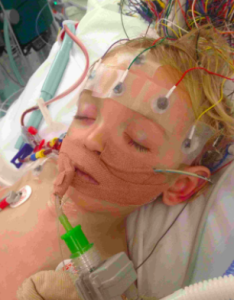Doug chronicled one of the issues that public health folks deal with regularly – what to tell the public about investigations into outbreaks, and when – for his most recent column for Texas A&M’s Center for Food Safety,
Go public too early, and make a mistake, and a corporation or industry’s reputation could unduly suffer. Go public too late, and individuals and businesses may be denied critical information they could use to protect public health.
An E. coli O55 outbreak that has led to at least 11 illnesses has family members challenging the unwritten dogma of when health officials go public, according to the Bournemouth Daily Echo.
Victims of the E coli outbreak have criticised Public Health England for not doing more to publicise the risks of the bug. PHE stressed it had thoroughly investigated each and every case but had not been able to find any common source between the cases in July and August. It said it had not told any of the victims their cases were closed but that activity would have slowed because of the lack of any common factor between cases.
But victims and relatives are still unhappy with the way the PHE has handled the issue. The grandfather of a three-year-old Blandford girl, currently battling E coli in Southampton General Hospital, said: “Why does it need a newspaper to get involved for PHE to do something? “They could have let people know about the symptoms and what to look out for weeks or months ago.”
He said his granddaughter had been in theatre for an operation on Wednesday and was now back on dialysis. “We are just keeping everything crossed at the moment. It’s so heartbreaking to walk in and see her hooked up to all these machines.”
Gabrielle Archer, whose son Isaac Mortlock was among the first victims of the current outbreak, said: “I’m devastated to hear that these other children are now suffering and going through the daily blood tests and dialysis that Isaac had to go through. “I feel that perhaps had Public Health England taken this case a bit more seriously that might not have happened.”
A spokesperson for PHE said they had been proactive but said this did not necessarily mean engaging with the media.
In a related story, the mother of one of the children tragically impacted by the outbreak detailed the devastating effects of E. coli O55
These horrifying images of 21-month old Freddy Osborne seriously ill with E coli show just how serious the bug can be. Mum Charlotte Fudge, 25, allowed the Echo to print the picture of Freddy in intensive care to raise awareness of the illness, which since July has affected 10 people who are either residents in Dorset or visited the county. It’s believed Freddy, of Bournemouth, was the first to contract the disease in July and spent a month in Southampton General Hospital, two weeks of which he spent in paediatric intensive care. He needed four blood transfusions, one platelet transfusion and had four seizures due to swelling on the brain. One of these lasted for four hours and left him blind for 10 days. Following this seizure, he was put into a coma for six days as it was too dangerous for him to try and breathe by himself. He had fluid on his heart causing his heart rate to go up to 202 beats per minute and he ended up suffering from morphine withdrawal.
